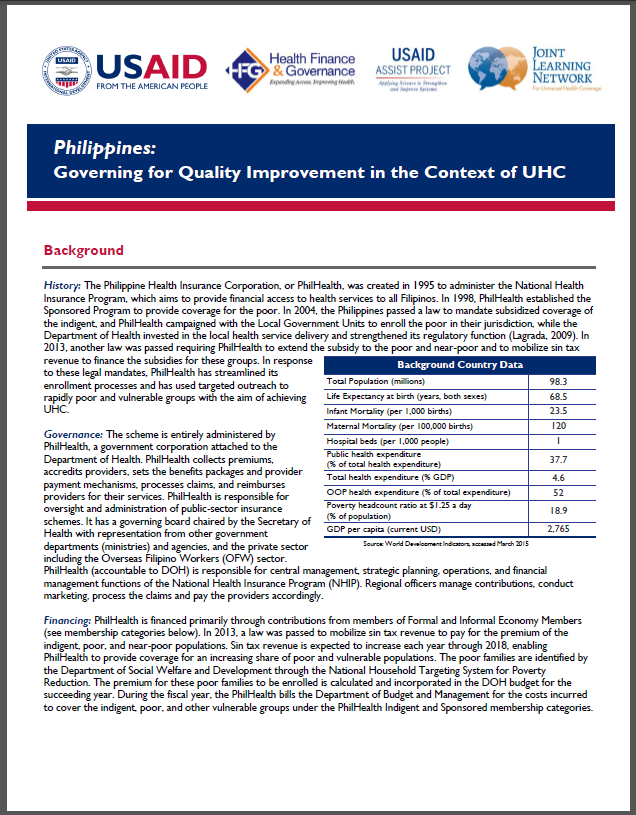Philippines: Governing for Quality Improvement in the Context of UHC
Categories: Governance and Leadership, Publications, Universal Health Coverage, Where We Work
Resource Type: Case Study
 Authors: Lisa Tarantino, Kelley Laird, Amanda Ottosson, Ruben Frescas, Kedar Mate, Vivian Addo-Cobbiah, Cynthia Bannerman, Paulina Pacheco, Daniel Burssa, Andrew Likaka, Mirwais Rahimzai, M. Rashad Massoud, and Shams Syed
Authors: Lisa Tarantino, Kelley Laird, Amanda Ottosson, Ruben Frescas, Kedar Mate, Vivian Addo-Cobbiah, Cynthia Bannerman, Paulina Pacheco, Daniel Burssa, Andrew Likaka, Mirwais Rahimzai, M. Rashad Massoud, and Shams Syed
Published: August 2016
Resource Description:
The Philippine Health Insurance Corporation, or PhilHealth, was created in 1995 to administer the National Health Insurance Program, which aims to provide financial access to health services to all Filipinos. In 1998, PhilHealth established the Sponsored Program to provide coverage for the poor. In 2004, the Philippines passed a law to mandate subsidized coverage of the indigent, and PhilHealth campaigned with the Local Government Units to enroll the poor in their jurisdiction, while the Department of Health invested in the local health service delivery and strengthened its regulatory function (Lagrada, 2009). In 2013, another law was passed requiring PhilHealth to extend the subsidy to the poor and near-poor and to mobilize sin tax revenue to finance the subsidies for these groups. In response to these legal mandates, PhilHealth has streamlined its enrollment processes and has used targeted outreach to rapidly poor and vulnerable groups with the aim of achieving UHC.



